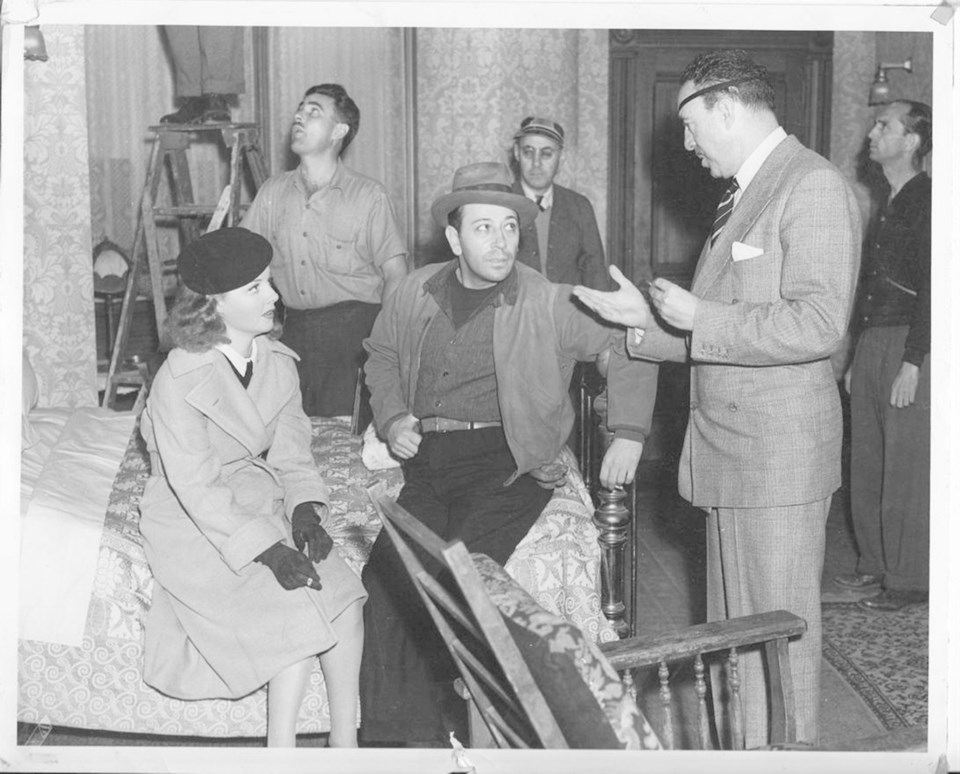When Joel Bender was in town for the Canadian premiere of The True Adventures of Raoul Walsh at the Victoria Film Festival, he had more to smile about than during his 2006 trip to Canada.
His visit to Toronto nine years ago was equally memorable but for different reasons, said the veteran Hollywood director and film historian.
“They kicked my head in here when we came out,” laughed Bender, recalling the hostile reaction to his controversial film Karla before it opened across Canada eight years ago. A firestorm ensued before the opening credits even rolled on Bender’s film that dramatized the horrific sex slayings of three teenaged Ontario girls by serial rapist Paul Bernardo and his wife and accomplice, Karla Homolka.
The disturbing drama, which starred Laura Prepon (Orange Is the New Black) as Homolka and Misha Collins as Bernardo, was told in flashbacks from Homolka’s point of view, albeit one challenged by the psychiatrist (Patrick Bachau) who evaluates her eight years into her 12-year prison term for manslaughter.
The film prompted Ontario premier Dalton McGuinty to call for boycotts. It was also yanked from the Montreal World Film Festival under pressure from sponsor Air Canada.
Response to The True Adventures of Raoul Walsh, a documentary on the legendary Hollywood director that was written and directed by Marilyn Ann Moss and co-directed by Bender, was much warmer. Based on Moss’s biography Raoul Walsh: The True Adventures of Hollywood's Legendary Director, the homage is a fascinating, fast-paced flashback that uses archival footage to recall the Hollywood adventures, on set and off, of the prolific iconoclast born in 1887.
The influential director started out as an actor, playing John Wilkes Booth in D.W. Griffith’s Birth of a Nation (1915) before discovering John Wayne and Rock Hudson, and helming dozens of classics.
He worked with stars including Douglas Fairbanks, Errol Flynn, George Raft, Humphrey Bogart, James Cagney, Mae West and Gloria Swanson, whom he recalls as “one of the most bewitching creatures I’ve ever known.”
The illustrious career of the famously playful director, who began wearing an eyepatch in 1928 after losing his right eye in a freak accident, was highlighted by war and gangster pictures, westerns, musicals and comedies, including White Heat, The Thief of Bagdad, The Big Trail, High Sierra, Klondike Annie, They Drive by Night, Sea Devils and Sailors Luck, in which Walsh gleefully taunted the censors with risqué references to homosexuality.
The documentary, narrated by actor John Crear as Walsh, is as fast-paced as many of the films made by its subject as it recalls the life and achievements of the thrice-married moviemaker chronologically, from the silent-film era to the 1960s.
Although Bender’s credits include directing TV shows such as The Mighty Morphin Power Rangers and Sweet Valley High, and the films Rich Girl and Gas Pump Girls, he’s a self-described “film nut” — a passion he developed during his childhood when he’d go to the movies in Queens with treats from his father’s candy store.
After attending New York’s School of Visual Arts, the Brooklyn-born flimmaker worked for the late film historian William K. Everson and collector Paul Killian, and came to Hollywood at the invitation of the late filmmaker Otto Preminger, whom he met while working on a book about life on a movie set.
While at a film archive in Manhattan recently to screen one of his first films, Bender agreed to be interviewed by a film buff whose father bought old 35-millimetre old movies “by the pound.”
While the camera was being set up in a small warehouse, Bender spotted a canister containing a first-generation print of Falstaff: Chimes at Midnight, Orson Welles’ 1966 masterpiece.
“We opened it up and it smells like a fresh print that was sitting in this box since 1966,” he said. “I said: ‘Do you know what this is?’ He said: ‘No, someone offered me $1,000 for it.’”
Bender, “a big Orson Welles guy,” who saw the film when it premièred in Manhattan, is planning to restore it.
“This is a magnificent movie made by Orson Welles, but it’s not that well-known,” he said. “That film was way ahead of its time. I’m so thrilled about this.”
